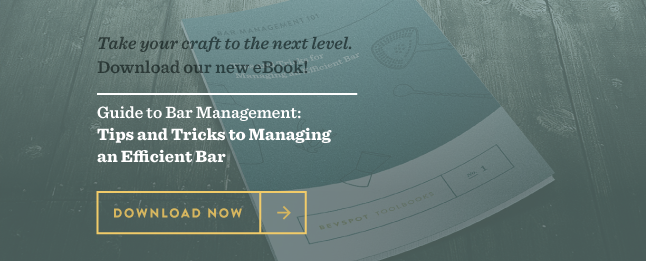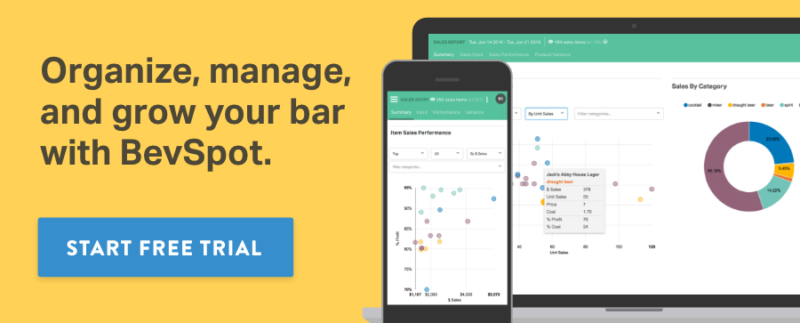I Get Fired From E Bar Can I Back to Drink
Nobody likes to fire. Nobody likes to be fired.
Whatever side you're sitting on, there's nothing comfortable about the situation, but sometimes, it's what has to be done. I've found there's generally five categories that most firings fall under, but none of these is also without coaching possibilities/safeguards that help diminish them.

1. Theft
Over the years, I've worked with people who have stolen from the place of employment. Some were so good at it, that it wasn't until either they had already quit the bar that we discovered thousands in loss both in liquor and cash.
Theft isn't just taking money out of the cash drawer either. Theft is also giving away drink or food without permission. Theft is also purposely not ringing in an order and pocketing the cash. Theft is also staying on the clock while not doing work like being on your cell phone or taking a lot of smoke/bathroom breaks.
Suggested Policy:
Theft should always be a one-strike policy. There is never a "good reason" for stealing from a business. You don't owe an employee an explanation beyond letting them know they've been caught stealing and do not qualify for unemployment. Theft is written into law, while you can put it into your employee handbook/training as an extra precaution, this policy is backed up by the legal system.
Safeguards:
As I got to know more about the industry and finances, I understood that security cameras are a safeguard for many things: not just the possibility of employee theft, but, if someone broke in, there would be documentation too. With cameras in place, your staff will be less tempted to manipulate money behind your back. Also, have it be policy that only managers handle the cash drawer at the end of the night. Document all voids, spills, breakage, and comps. If you want to really find out what's going on with your money, beef up your inventory skills and limit inventory only to management or your head bartender.
2. Lying
You've got an employee who called out sick so you're down a bartender. As bar manager, instead of doing inventory, you're now working an unscheduled shift for the sick employee as well as inventory. The next day, one of your other bartenders is talking about where they were last night and mentions the "sick" employee was also out with them. Turns out they weren't sick, they just really wanted to go to a concert.
Suggested Policy:
This should be a two/three-strike policy. The first time should trigger a conversation that talks about company expectations on behavior and accountability. Call in the employee before their shift and sit them down. Make it clear that, when they are scheduled for a shift, it is their responsibility to get the shift covered. If they aren't actually sick and lie about reasons why, explain that it damages the trust between them and everyone they work with.
For repeat offenders, this conversation should already have happened, and, if they choose to do it again, hold them accountable to your company policy and let them go. It's better to be down a bartender and trust the staff than have someone unreliable continue to work.
Safeguards:
Being transparent and honest tends to encourage the same from employees. Lay out the expectations on calling out sick. Check your local and state laws and be knowledgeable about what that means for sick employees. Having a plan for coaching employees out of bad behavior is an excellent means of strengthening your own management skills as well as encouraging them to step up their own responsibility.
3. Harassment/Disrespect
Harassment can be verbal, physical, sexual, and it's often subjective. Which is partly why it's so difficult to identify and coach. Whether it's the chef making a sexist remark in the guise of a "joke" to the female bartender grabbing food from the window or an employee labeling customers by their race on the POS screen, there's a line that shouldn't be crossed and, too often, we are guilty of letting these issues go.
I have a general rule of thumb for harassment: if you wouldn't say or do it to/around a kid, then don't do it. I'd be naive if I didn't acknowledge that us hospitality folk are notorious for our raunchy senses of humor, but there is a difference between a joke that everyone is in on, and a joke that makes someone, or someone's identity, a punchline. I've also generally found that people who demonstrate harassing behavior also tend to disrespect management and their coworkers.
Suggested Policy:
This is another one-strike policy for me. Harassing behavior comes in many forms and, often times, the harasser has done it before without being held accountable. It's not that they are unaware of what they are doing, but it's been allowed to go on without consequence.
Safeguards:
With every new hire, talk with them about what harassment is, what it means for your company, and give them some examples that happen in bar situations. Let them know that you have a zero-tolerance policy for harassing, disrespectful behavior and that you are always free to support them or any coworkers if they are being harassed. Demonstrate to your employees that you have their backs if someone, a customer or a co-worker, is harassing them.
4. Failure To Meet Expectations
It's always tough when someone you hired fails to meet the technical job requirements after significant time and training, but it does happen. I generally give new hires 2-3 months of on-the-job learning to get into a flow. But some employees aren't ready for the technique needed or aren't able to multi-task fast enough and it costs labor hours.
You can like everything about the employee, but they are costing your business money and underperforming compared to the rest of the staff. Underperforming staff can create resentment among the other staff because they're working extra hard to make up for the weaker employee. Once resentment sets in, poor morale impacts customer service and you'll find you might also lose those other employees.
Suggested Policy:
Don't pull weak employees off the schedule or send them home early because you don't have confidence in them. If you're going to do that, you may as well just fire them. If you aren't willing to coach weaker staff, then own that. Don't make excuses. Consider adding into their training manual that training has a range of 2-4 weeks (or whatever you feel is best) depending on their demonstrated ability. It gives employees a timeline to pay attention to. I've found putting in a timeline works really well at getting employees to step up their game.
Safeguards:
When technical skills are a problem, I begin a series of conversations, possible further training shifts, and documentation. Sometimes it's something as simple as miscommunication about expectations. Sometimes it's something personal outside of work. Sometimes it's simply that the employee just can't do the job.
Regardless, this is one of the easier coachable situations. Was something not communicated properly? What's going on in their life? Communication is key to good coaching. You hired them, so they clearly must have demonstrated that they could get to the level you need them at: do your best to get them to that level. Pair them with a good training bartender. Put them on shifts that allow them the growth in the area/s they are struggling.
5. Drunk/High On the Job
According to the U.S. Equal Employment Opportunity Commission, an alcoholic is a person with a disability and is protected by the Americans with Disabilities Act (ADA) if he or she is qualified to perform the essential functions of a job. In such instances, an employer may be required to provide an accommodation to the individual.
However, an employer can discipline, discharge or deny employment to an individual whose use of alcohol adversely affects his or her job performance or conduct. Do you know your employee? Don't treat alcoholism as a problem, but then chuckle at the hangover from the employee who went binge drinking the night before.
Suggested Policy:
This is often another one-striker. Intoxication/inebriation of any kind while doing one's job is grounds for termination, especially if it's stated in the employee handbook. You wouldn't want your doctor operating on you while drunk or high, why would you serve anybody in that state of mind too? Bartenders are handling sharp objects, electronics, glass, and more. It's a ticking time bomb.
Safeguards:
You can't just fire an employee outright for perceived alcohol/drug use. If your employee has consistently shown up demonstrating clear signs of inebriation/drug use, document each time as well as have a conversation with them about what's going on. Approach them with compassion and remove them from a public area to a designated area of privacy until they can be taken home or to a medical facility if needed. If it's something they explain is a problem, depending on the employee policies your company has established, discipline or suspend the employee or require the employee go through rehabilitation.
No Bad Blood
Every company is different as is every employee. Most of the above situations can be handled with similar disciplinary actions, but only you as the employer/manager know your employee and situation best.
For me, leading with compassion and questions first often led to the best solutions and least firings. Also, it should always be done in person. No email, no phone, no text. Show respect. The employee is still part of the hospitality network, and that kind of dismissal doesn't make you look good. You don't want a reputation as a bad employer/manager that is backed up by poor action. Whatever you choose to do, be consistent, be direct, and be sure when you let an employee go.

I Get Fired From E Bar Can I Back to Drink
Source: https://bevspot.com/5-situations-fire-bartender/
0 Response to "I Get Fired From E Bar Can I Back to Drink"
Post a Comment